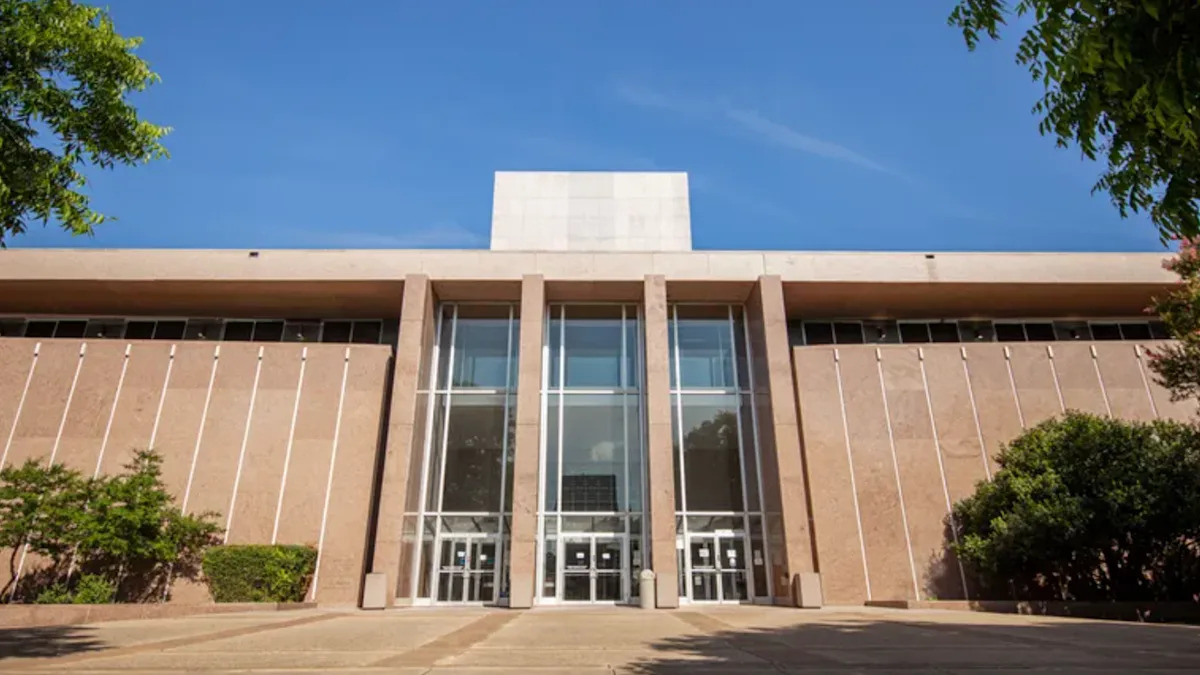The Brief
A new Texas Supreme Court ruling lets judges refuse to perform marriages for religious reasons.
Legal experts say same-sex couples should still be able to marry but warn the rule raises equal protection concerns.
The decision comes amid broader statewide actions affecting LGBTQ+ rights and public expression.
DALLAS – A Texas Supreme Court decision last week has made it possible for judges in the state to refuse to perform wedding ceremonies for personal religious beliefs.
An expert who specializes in constitutional law told FOX 4 this won’t necessarily make it more difficult for same-sex couples to get married in Texas, as there are options for judges who reside over weddings.
However, it could raise questions about the constitutional right of equal protection under the law.
Texas judges can refuse same-sex weddings
The backstory
The new addition to the judicial conduct code reads, quote:
“It is not a violation of these canons for a judge to publicly refrain from performing a wedding based upon a sincerely held religious belief.”
For years, the topic has been debated after a Central Texas judge was disciplined for declining to preside over same-sex weddings.
Possible constitutional rights violation
What’s new
David Coale is an attorney who specializes in constitutional law.
The new conduct code went into effect immediately. Coale says it might be some time before we see if it has an impact on same-sex couples in Texas finding a judge to marry them.
This is where Coale says the U.S. Constitutional right for equal protection could come into play.
It was the basis for landmark cases like Brown vs Board of Education and Obergefell vs Hodges, that ruled the fundamental right to get married includes same-sex couples.
‘Are we really comfortable with that?’
What they’re saying
“This ruling by the Supreme Court addresses only the narrow issue of, does a judge violate the state ethics rules for a judge?” Coale said.
“If I say, ‘go to the guy next door, he can take care of you,’ and the guy is, in fact, next door and takes care of me. On the one hand, no problem, right? I got married, took me 10 seconds longer than otherwise might have. On the other hand, are we really comfortable with that?” Coale continued.
Coale believes the Obergefell ruling will remain solid within the new judicial conduct code.
“Obergefell rests on other principles: equal protection of the law, treating everybody the same way, and a due process right that we have to get married and have that special relationship. Those principles really aren’t affected too much by what happens with this kind of religious exemption,” Coale said.
Texas leaders vs LGBTQ+ community
Dig deeper
The Texas Supreme Court’s decision comes at a time of uncertainty for LGBTQ+ people in Texas.
Several moves by state lawmakers have brought changes surrounding sexual orientation and gender identity.
Earlier this month, Gov. Greg Abbott declared that all political ideologies must be removed from roadways, which includes rainbow crosswalks that have become a popular symbol of the Pride community.
“The symbolic value is important, because even symbol, even a relatively trivial distinction that’s drawn on the basis of race or its effects of fundamental rights, like getting married, well, that raises some serious questions, even if it affects just a handful of people. So it does ultimately come full circle from the political to the legal?” Coale said.
What’s next
SCOTUS is considering whether to hear challenges to same-sex marriage after a case in Kentucky involving a county clerk who refused to give out marriage licenses due to her religious beliefs.
The Source
Information in this report comes from a FOX 4 interview with constitutional law expert David Coale, and previous FOX reporting.

